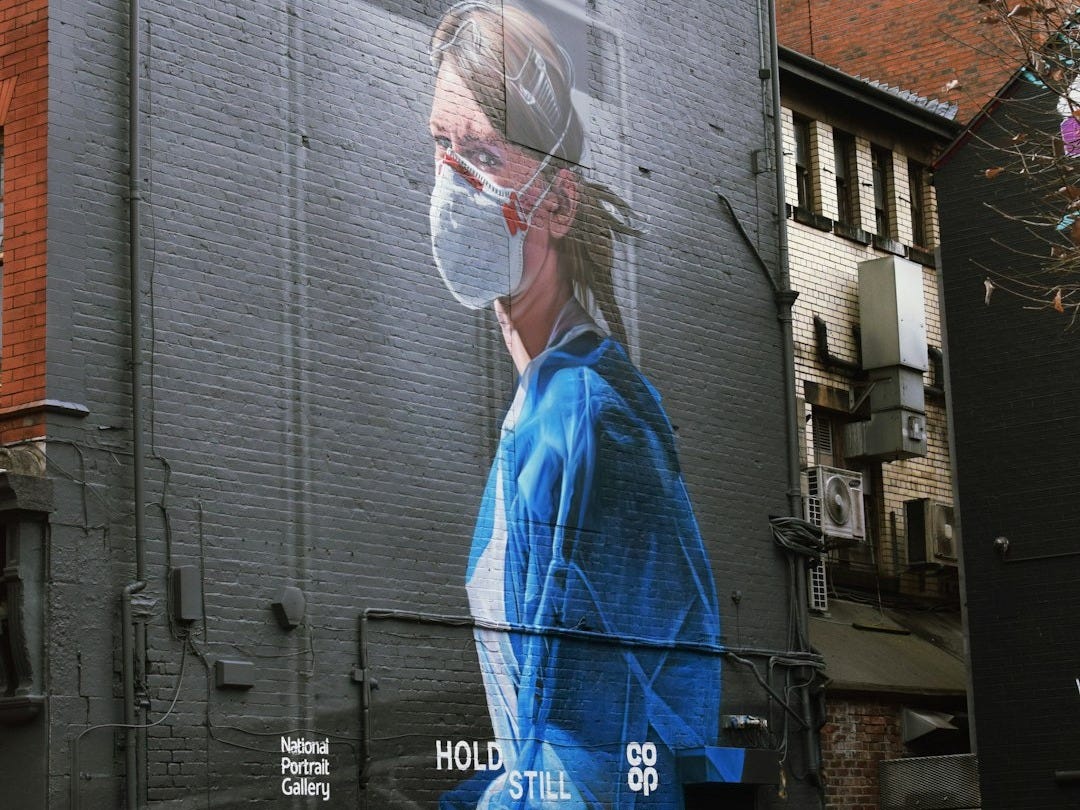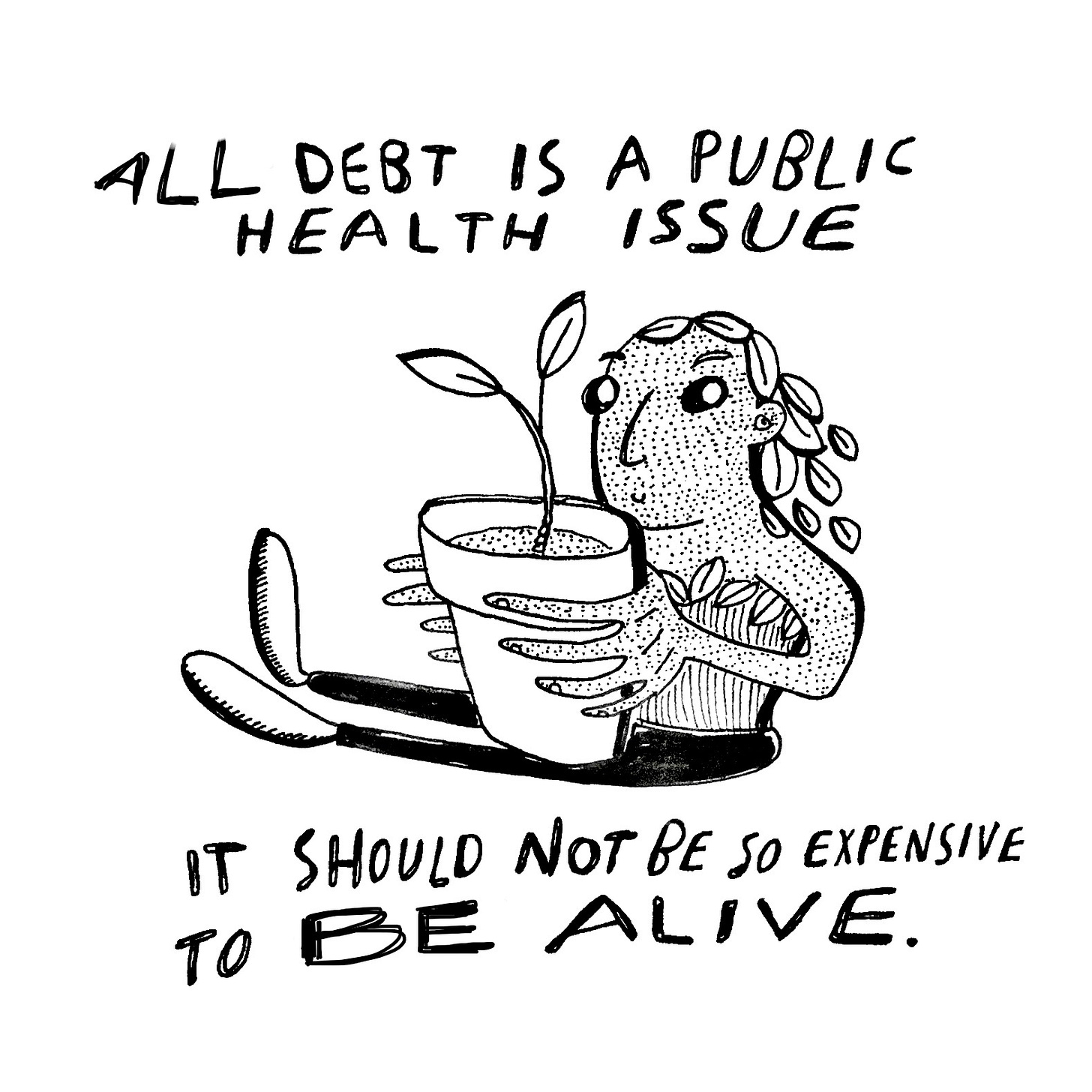Dems Caved on Healthcare. Is There a Way Forward?
A radical coalition of patients, health care workers, medical debtors, clinicians and working people can demand a better world.
The word is out. In recent days, eight Senate Democrats sold out their constituents and colleagues by striking a deal with Senate Republicans to reopen the federal government—and many of us are reeling. If you haven’t been paying close attention, this might sound odd. SNAP benefits were suspended, federal workers have gone without pay, thousands of flights have been cancelled—isn’t reopening the government a good thing?
Well, generally yes! But the federal government was shut down because Democrats were holding a really important line on health care. We’ll explain:
What Happened in the Shutdown Fight?
The Affordable Care Act (ACA)—sometimes referred to as Obamacare—was signed into law by President Barack Obama in 2010. We will be the first to acknowledge the ACA’s many flaws, but it also marked a major change, opening the door for millions of Americans to receive health coverage that wasn’t tied to their employment status by purchasing it through a state exchange.
Donald Trump has been hellbent on dismantling the ACA for years, and not in the interest of a system that would be better for patients. That’s because he knows the same thing we do: debt is a tool of social control. When working class Americans are vulnerable to the worst aspects of the medical-industrial complex—when it’s nearly impossible to get health care without going into debilitating debt—it becomes that much more difficult to fight for a liberatory future.
This July, early in his second term, Trump and the Republicans passed the so-called Big Beautiful Bill—a disastrous piece of federal budget legislation that slashes SNAP benefits, Medicaid, and many other critical social welfare programs, and fails to extend the tax credits that make it possible for low-income people to afford ACA plans in the first place. The funds that support those programs are redirected into (1) the massive expansion of the militarized police state and deportation machine we’ve seen terrorizing Los Angeles, Chicago, Portland, and communities across the country, and (2) massive tax giveaways for corporations and the wealthy and powerful 1%.
To implement the terms of the budget bill, Congress had to pass a funding package. At the end of September, led by the Congressional Progressive Caucus and in response to public outrage—most Democrats in Congress drew a hard line, refusing to pass a package that didn’t extend the tax credit subsidies most people on ACA plans need to afford their monthly health insurance premiums—and demanding reversal of Medicaid cuts that will see an estimated 18 million people lose Medicaid in the coming years.
Republicans refused to negotiate on these terms, forcing a government shut down. With no concessions from the Republicans, the government has remained closed. That is, until this past weekend when eight Dems broke rank. Now their legacy will be green lighting one of the worst deals in political history.
For more analysis, check out this Now This video:
Reclaiming Our Political Power as a Health Care Constituency
Working class communities, workers and debtors, and all of us who aren’t billionaires, cannot limit our political power or imagination to what can be won through the actions of Congress, in which the vast majority of members of both parties clearly have corporate interests—not ours—as their priority.
So what is to be done? There are several ways to think about how to answer this question. Supporting bids for office by more progressive Democrats is one good, simple place to start. More critically, now is a great time to form a union in your workplace or become more active in your current one, as unionized workers across sectors align contracts and organize toward a general strike on May Day 2028.
In years past, our Rolling Jubilee Fund (as well as offshoot efforts inspired by the Rolling Jubilee) has purchased medical debt on the secondary market and then abolished it. That immediate relief has been life changing for people—but it isn’t sustainable. We can’t purchase all the debt in the country. No one can. And despite having been the ones to set this practice of small-scale debt jubilees into motion over a decade ago, we have our own critiques of this approach and its limits.
We think part of the solution is something unique that doesn’t yet fully exist, but has been slowly taking shape: a radical coalition of patients, medical debtors, healthcare workers, clinicians, and working class people across the country who have had enough of a healthcare system that doesn’t work for any of us.
Together, we can act as a political constituency with the power to interrupt and push back on the medical-industrial complex. Healthcare profiteers—large hospital systems, insurance companies, big pharma, credit card companies, and other bad actors trapping us in debt for healthcare we need—do not exist or operate in a vacuum. What we need, and what we are building, is a union of debtors, acting collectively and with our allies to demand debt relief, price reductions, and the structural transformation of a healthcare system that has failed us.
We cannot wait on leadership in this fight from members of Congress, because it will never arrive. In the words of Frederick Douglass: Power concedes nothing without a demand. It never did and it never will.
It’s now on us to make those demands, to lean into our political agency, and to make power concede.

Scenes play out every day across the country that show us the tragedy of a healthcare system we have somehow come to accept as normal: a retired public school teacher in Georgia finds their mailbox overflowing with past-due notices from the hospital billing department; a family in Wisconsin files for bankruptcy after dad’s cancer treatments become too much to afford; a veteran takes out another credit card to pay for an emergency dental procedure in New Hampshire.
You probably know someone with a story like this—maybe you have one yourself. For millions of us in the United States, our encounters with the healthcare system are defined by death, debt and despair—or some combination of the three.
At Debt Collective, we believe that we have power as debtors and as potential debtors (or even likely debtors, in the case of our healthcare system). Realizing this power starts with organizing medical debtors and, together with our natural and strategic allies in the struggle for a different healthcare system, beginning to identify ourselves and act as a political constituency.
Alone, we suffer individually. Together, we can fight against the capitalist grip of our system and its exploitation of our needs—and for a transformed healthcare system. The truth is, none of the changes we need are going to come from the goodwill of the people at the top. They’ll be won from below, led by regular people with a stake in the fight. We invite you to make Debt Collective your political home.
Join our upcoming calls to learn more about how we’re building the fight for medical debt abolition and a world transformed:
National Call for Medical Debt Abolition – Monday, November 17 @ 8pm ET / 5pm PT
Can’t Pay Won’t Pay: Rejecting Healthcare Costs – Thursday, November 17 @ 8pm ET / 5pm PT



